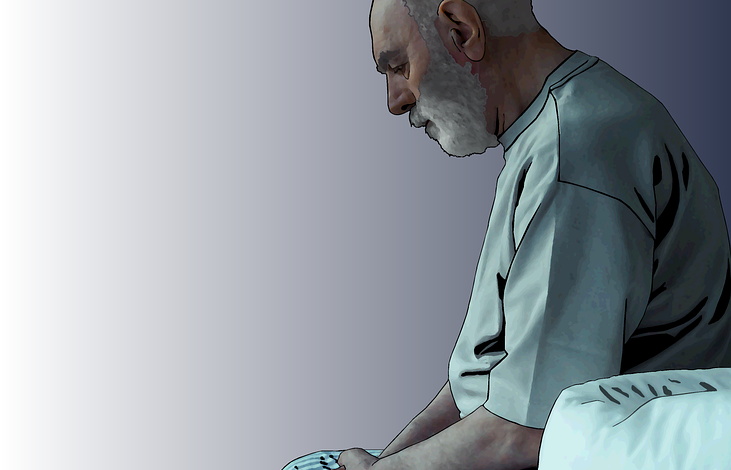Can Xanax Cause Constipation?

Constipation is a condition in which a person has uncomfortable or infrequent bowel movements. Generally, a person is considered to be constipated when bowel movements result in the passage of small amounts of hard, dry stool, usually fewer than three times a week. However, normal stool elimination may consist of having a bowel movement three times a day or three times a week; it depends on the person.
About 4 million people in the United States have frequent constipation. Constipation is the most common gastrointestinal complaint, resulting in 2.5 million doctor visits annually.
Hard, dry stools are the result of the colon absorbing too much water. Normally, as food moves through the colon (also known as the large intestine), the colon absorbs water while forming stool (waste products). Muscle contractions then push the stool toward the rectum, and, by the time the stool reaches the rectum, most of the water has been absorbed, making the stool solid.
When the colon’s muscle contractions are slow or sluggish, the stool moves through the colon too slowly, resulting in too much water being absorbed.
What is Xanax?
Xanax is a brand of alprazolam, a powerful benzodiazepine that is used to treat anxiety and panic disorders by decreasing abnormal excitement in the brain. The medication comes in the form of a tablet that quickly dissolves in the mouth, an extended-release tablet, or a concentrated oral solution.
Benzodiazepines can have therapeutic anti-anxiety, anti-convulsant, muscle relaxing, and sedative effects. Xanax works by increasing the effects of a brain chemical called gamma-aminobutyric acid (GABA), which promotes calmness and produces a relaxed feeling. The drug decreases the level of excitement in the brain to treat anxiety and panic disorders.
Alprazolam is among the most prescribed benzodiazepine drugs in the U.S. and is among the benzodiazepines most often found in the illegal market, according to the Drug Enforcement Administration.
Xanax is often prescribed for mental health disorders related to anxiety. It can be used to treat general anxiety, panic disorder, social anxiety disorder, and phobias. It can also be used to treat seizures. For people who suffer from anxiety, it can create a sense of relief to focus on their lives without issues of anxiety or phobias plaguing them. When used as prescribed, it can calm people down and make them feel relaxed.
Xanax can also reduce physiological symptoms of anxiety and fear, such as a racing heart or hyperventilation. These drugs are so often prescribed because they work well on anxiety and they’re cheap.
However, many people use Xanax for nonmedical reasons, taking it in larger doses or more frequently than prescribed because it can create a euphoric feeling, especially at higher doses. Xanax tends to start acting quickly after a person takes it, and the euphoric effects of the drug will usually manifest themselves within about an hour after taking it.
A tendency has grown in some social circles to view Xanax, as a type of “alcohol” in pill form. It’s become socially acceptable among these groups of friends to get together and share Xanax with one another. Of the 30.5 million people who used benzos in 2015, 17.1% misused them. Misusing Xanax or combining it with other substances like alcohol can amplify its effects, but the results can also be deadly.
Along with recreational use, many people rely on Xanax to deal with issues like situational anxiety without having to commit to therapy, which can be expensive and time-consuming. Xanax is popular in America, for example, because there is a tendency for people to love things that are looked at as a quick fix. Xanax isn’t a long-term medication, so some people “take it when they need it” for relief. The temporary relief they feel can help in a fast-paced world with constant exposure to negative world news, stressful jobs, and uncertainty.
Can Xanax cause constipation?
Yes, taking Xanax can cause constipation because its muscle relaxing properties can trigger a change in bowel movements. Benzodiazepines like Xanax are complex drugs that interact with neurotransmitters like serotonin and GABA. They cause an increase in serotonin and dopamine levels, while also increasing GABA activity.
GABA has been implicated in the regulation of intestinal fluid and electrolyte transport by virtue of its presence in submucosal nerve cell bodies and mucosal nerve fibers. Changes in the levels of these neurotransmitters for some can result in constipation. This also explains why Xanax often worsens constipation in elderly patients who are more likely to have unwanted effects.
What can I take for Xanax-induced constipation?
If you suspect your constipation is caused by Xanax, talk with your doctor about your side effects. Do not stop taking the medicine until you have spoken with your doctor.
Drinking enough fluids can also help prevent and treat Xanax-induced constipation. It can help move food through your digestive system and stop stool from hardening.
In general, you should aim to drink about nine cups of liquid a day if you’re a woman and 13 cups if you’re a man. If you’re constipated or taking fiber supplements, you may need to drink more. Ask your doctor for guidance.
Though water is an ideal choice, don’t discount the benefits of other beverages.
Use caution with alternative therapies. Some alternative therapies may cause constipation. Talk to your doctor about any alternative therapies you are using when taking Xanax.
Xanax Interactions
• Do not use this medicine if you are also using ketoconazole or itraconazole.
• Some foods and medicines can affect how alprazolam works. Tell your doctor if you are using any of the following: Amiodarone, carbamazepine, clarithromycin, cimetidine, cyclosporine, desipramine, diltiazem, ergotamine, erythromycin, fluconazole, fluoxetine, fluvoxamine, imipramine, isoniazid, nefazodone, nicardipine, nifedipine, paroxetine, propoxyphene, sertraline, or theophyllineBirth control pillsSeizure medicine
• Tell your doctor if you use anything else that makes you sleepy. Some examples are allergy medicine, narcotic pain medicine, and alcohol.
• Do not drink alcohol while you are using this medicine.
• Do not eat grapefruit or drink grapefruit juice while you are using this medicine.
• Do not stop using this medicine suddenly. Your doctor will need to slowly decrease your dose before you stop it completely.
• Keep all medicine out of the reach of children. Never share your medicine with anyone.





